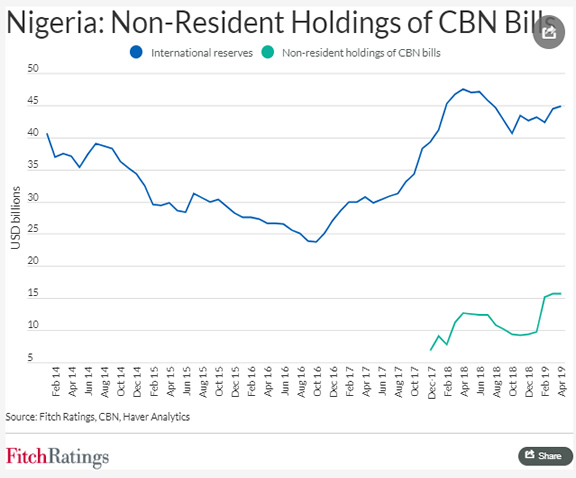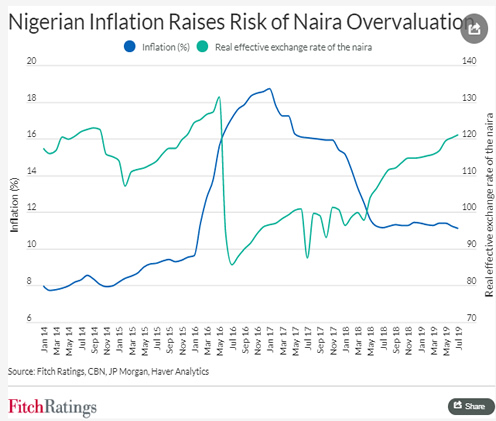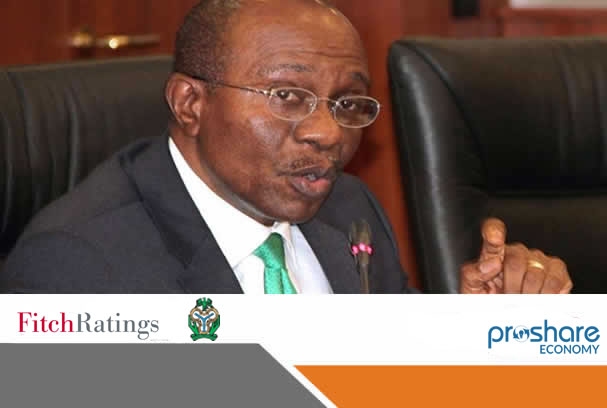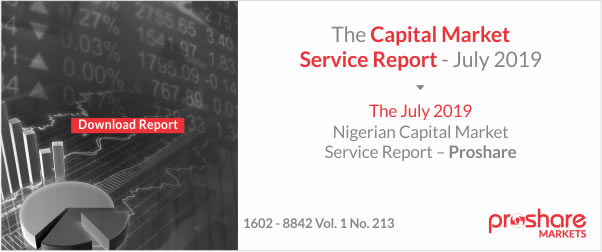Wednesday, August 28, 2019 /08:58AM / Fitch Ratings / Header Image Credit: BBC
TheCentral Bank of Nigeria's (CBN) recent attempts to boost economic activitythrough incentives to bank lending jar with its goal of maintaining a stableexchange rate, Fitch Rating says. Attempts to reconcile competing goals throughunconventional macroeconomic management and weaknesses in policy settings areraising medium-term vulnerabilities to shocks, which could make the economymore exposed to falling oil prices or disruptions to hydrocarbon production.
Tightmanagement of domestic liquidity has been the key pillar of Nigeria'sexchange-rate policy in recent years. However, several recent measures to boostlending have contributed to a temporary loosening of domestic financingconditions. This has combined with falling oil prices and deteriorating investorsentiment towards emerging markets to put pressure on the naira. The measures,announced by the CBN in July, included a requirement for banks to have aloans-to-deposits ratio of at least 60% at end-September and tighterrestrictions on the amount of remunerable deposits that banks can park at thecentral bank.
Exchange-ratepressure led the CBN to resume its liquidity tightening operations this monthby auctioning Open Market Operations (OMO) bills, and to increase the supply offoreign currency, releasing about USD800 million from its foreign-currencyreserves between mid-July and mid-August. (Foreign-currency reserves wereUSD44.2 billion at 19 August.) These moves have contributed to a rebound indomestic interest rates and limited the depreciation of the naira on theInvestors' and Exporters' FX Window to 1% since end-June.
Thecompeting goals of preserving naira stability and supporting Nigeria's fragilerecovery are pushing the CBN towards increasingly complex policy measures, witha risk of aggravating external vulnerability or causing macroeconomicdistortions. We expect the CBN to continue to pursue a combination of tightliquidity management, segmented exchange-rate markets, and foreign-exchange(FX) interventions and restrictions. It will be aided by ample internationalreserves of more than six months of expected 2019 current account payments, anda small current account surplus conditional (we estimate) on Brent pricesaveraging at least USD60 a barrel.
However,the CBN's policy of auctioning OMO bills to non-residents has led to a rapidbuild-up of short-term external liabilities with non-resident holdings of thesebills amounting to USD15.8 billion (4% of GDP) at end-April, equivalent to athird of reserves. This generates meaningful rollover risks, which couldnecessitate persistently high interest rates, holding back growth andincreasing the government's debt-servicing costs.

Furthermore,the CBN has recently moved to intensify restrictions on FX access for importsthat were imposed in 2015. Milk and dairy products have reportedly been addedto the list of 42 categories of products subject to restrictions on access toFX. Nigeria's president, Muhammadu Buhari, recently called on the CBN to restrictFX access for all food imports, but the scope, modalities and timeline of suchmeasures remain unclear.
FXrestrictions are unlikely to foster an expansion in domestic food supply, inour view, as Nigeria's agriculture and food industries suffer from deep-seatedchallenges from infrastructure gaps, communal conflicts, insecurity and weatherhazards. Instead, these restrictions could push more traders towards theinformal economy and compound inflationary pressures.
Inflationat about 11% already raises the risk of an overvaluation of the real effectiveexchange rate, which could put more pressure on the naira and increase the riskof a sharp adjustment following an oil price shock. Withdrawal of portfolioinvestors would aggravate potential balance of payment pressures.

Weaffirmed Nigeria's Long-Term Foreign-Currency Issuer Default Rating at'B+'/Stable in June. High dependence on hydrocarbons, subdued GDP growth, highinflation and weak governance indicators are key rating constraints, balancedby a large economy, a record of current account surpluses and a relatively lowgeneral government debt-to-GDP.
Related News
1. Banking Sector Update- Reviewed SDF Guidelines: Clear Intent; Minor Impact
2. CBN DeliversAnother News On Standing Deposit Facility of Nigerian Banks
3. CBN IssuesGuidelines on Accessing Standing Deposit Facility; Effective Thursday July 11,2019
4. CBN’s NewMinimum LDR Requirement May Worsen NPLs
5. CBN MandatesDMBs To Maintain Loan To Deposit Ratio Of 60% Effective Sept 30, 2019
6. Agenda For TheNew Federal Cabinet - FSDH
7. Setting The PaceFor The Next 4 Years
8. Is NigeriaImmune To The Next Global Slowdown?
9. CBN Goes IntoOverdrive On Protectionism
10. Naira Weaker OnLower Oil Prices, Apathy For Stocks And Profit Taking In The Local Debt Market
11. CBN To ExpandList Of FX Restrictions On Imported Items
12. ERGP: EconomistsCall For a Long-Term Economic Framework
13. NESG VisitsProshare, Solicits Strategic Media Collaboration Ahead of NES25
14. Why NigeriaNeeds To Unlock Economic Liquidity - Wale Edun
16. HeadlineInflation To Drop To A 42-Month Low Of 10.98% In July - FDC
17. The Pentad -Urban Retail Price Tracker - August 2019
18. Inflation RateSet for Lowest Level Since February 2016 - FSDH
19. PolicySignalling, Key To Attracting FDIs Into Nigeria - Muda Yusuf
 Lagos, NG • GMT +1
Lagos, NG • GMT +1











 2236 views
2236 views








 Sponsored Ad
Sponsored Ad
 Advertise with Us
Advertise with Us









